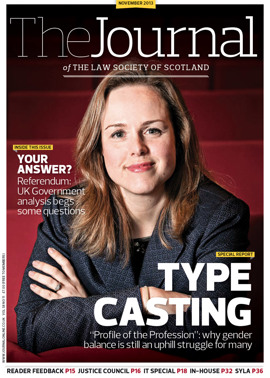Interesting times still

Three current pension issues illustrate that we are still living in interesting times.
The first two issues affect defined benefit pension schemes, and have been flagged up as part of consideration of the implications of a Yes vote in the independence referendum next year.
Cross-border pension schemes
Defined benefit occupational pension schemes with administration headquartered in the UK, which accept contributions from employers in the European Economic Area, fall into this category. These schemes require specific authorisation and approval from the Pensions Regulator.
The IORP Directive 2003/41/EC, incorporated into UK law by ss 287-295 in part 7 of the Pensions Act 2004, and regulations, requires cross-border schemes to be fully funded at all times.
Currently, UK pension schemes are subject to the UK statutory funding regime based on an agreed timetable to remove funding deficits based on affordability. If there is a Yes vote, and Scotland on independence would be in the European Economic Area, the requirement for full funding under the directive would apply, subject to any transitional provisions or exemption.
If immediate funding was required, that would place additional financial burdens on sponsors as cash payments would be accelerated, unless other assets were available. Both schemes and business would consider risks posed by that and take steps to address them, which may include structural adjustments to schemes and business changes.
ICAS and the Scottish Government have considered this issue in papers published respectively in April and September 2013, suggesting potential solutions for mitigation of the impact on schemes and sponsors as follows:
- Exemption. The Scottish Government argues for exemption on the basis that on independence the country would still be in an integrated financial services market.
- Transitional period. The Government cited the three-year grace period awarded to Ireland. A transitional period though would only delay the increased burden.
- Implementation. Different member states have interpreted the directive differently, suggesting perhaps that there could be a different Scottish approach to implementation. For example, Ireland assesses the application of the requirements on a case-by-case basis.
Scottish limited partnerships
These have been used in preference to the English version as the vehicle for asset-backed funding arrangements to support defined benefit pension schemes.
This came about due to the restrictions imposed on pension schemes from investing more than 5% of assets in their sponsor. In relation to both English and Scottish partnerships, it can be argued that an interest in such a partnership held by trustees is not a security of its sponsor, but currently the additional protection afforded by the Scottish limited partnership as an unincorporated body trumps the English version.
It has been observed, though, that on independence, this additional protection would fall away as the Scottish limited partnership would become an incorporated body, and so there would be no incentive for English pension schemes to use it for such arrangements.
Liberation of pensions
This is an area of high risk for pension scheme members.
The Pensions Regulator and other agencies have been mounting a campaign to increase public awareness (and also that of pension professionals) about the risks of pension liberation.
This is the term used where trustees or managers are asked by a member to transfer their benefits into another scheme or arrangement on the basis that it will be used to secure pension benefits within the authorised statutory framework, and that does not happen.
The incentive for members is access to funds earlier than retirement age, less the charges levied by the liberator. An unhappy result for members is a tax charge of up to 55% of the funds accessed. The liberator may also have committed fraud.
This is not a new phenomenon. Provisions seeking to protect members, including restraining orders, power to order restitution and repatriation orders, are found in the Pensions Act 2004, ss 18-21. Last month, the most recent case in this area, PI Consulting (Trustee Services) Ltd v Pensions Regulator [2013] EWHC 3181 (Ch) was decided in the High Court. Two sets of trustees and the Pensions Regulator asked the same question: whether the schemes in question were occupational pension schemes within the meaning of s 1 of the Pension Schemes Act 1993? If so, the Regulator's powers would apply, including the power to appoint independent trustees in order to ensure adequate protection of members' benefits. The court did not decide the question of whether the schemes were shams at this time.
After the trustees and the Pensions Regulator presented opposing arguments, the court held that the schemes met the s 1 requirements and the Regulator's powers applied. An added bonus for now is that a transfer to a registered pension scheme will not be an unauthorised payment, so there will be no tax charge. That challenge will be for another day.
In this issue
- Obituary: Professor Ian Willock
- Competition damages – a rocky road ahead?
- Heart of the matter
- Law reform on track
- Turning back the clock
- Golf and the right to roam
- Reading for pleasure
- Opinion column: Ros McInnes
- Book reviews
- Profile
- President's column
- Fee review open to views
- Some more equal than others
- Balancing act
- Paving the road to reform
- Blue sky thinking?
- A singular status
- You pay your money
- Acceptable BYOD use
- Interesting times still
- Aliment in vogue again
- Scottish Solicitors' Discipline Tribunal
- Speakers rise creatively to the challenge
- Why environmental indemnity?
- SYLA presents...
- How not to win business: a guide for professionals
- File reviews - how they can help
- Ask Ash
- Making the Act work
- Law reform roundup
- From the Brussels office
- Fraud alert revived
- "Start the conversation"






